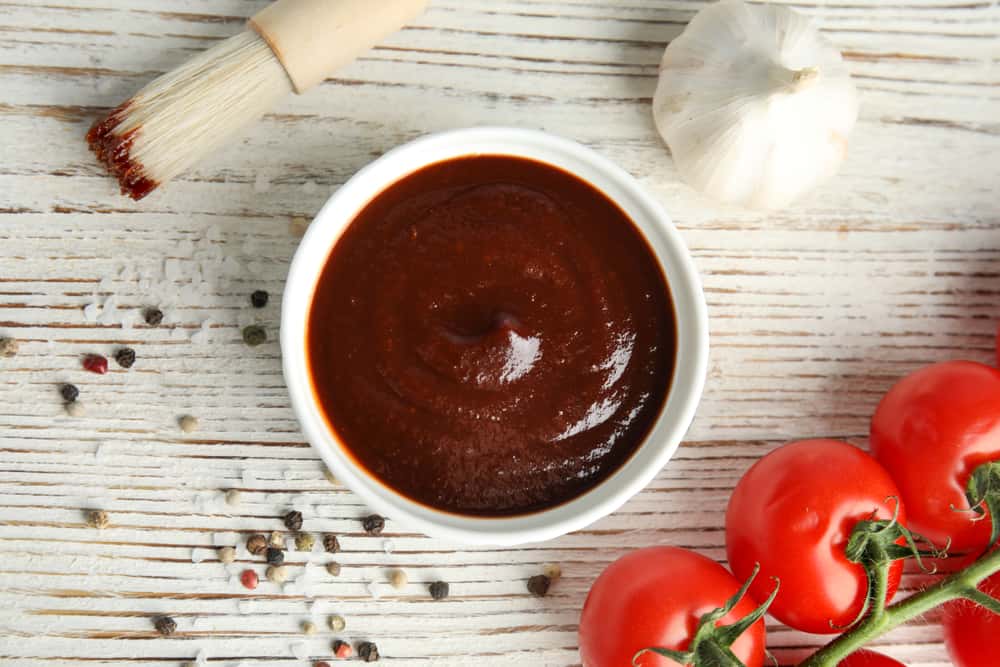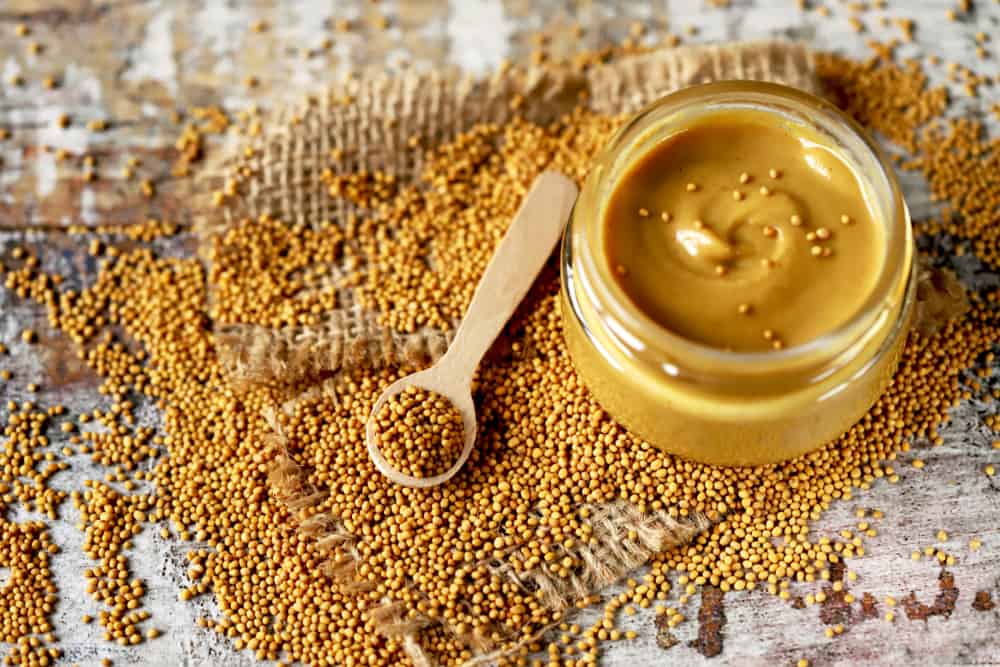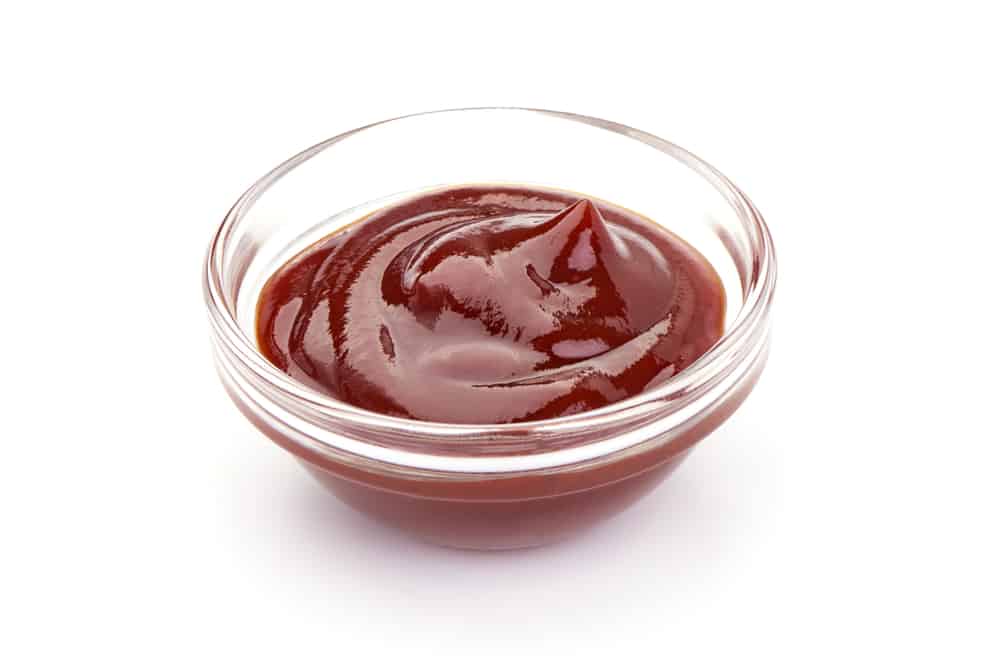Many varieties of barbecue sauce have a sweet flavor profile. That’s fine if you like that sort of thing. Some of us, however, prefer a tangier, spicier, or more acidic vibe—or all three at once.
Sound familiar? If so, our guide to non sweet BBQ sauce was created with you in mind. Keep reading for ideas on how to make this cookout staple less sweet and more savory.
Non Sweet BBQ Sauce
Many barbecue sauces, especially the commercially prepared ones, are overly sweet. You can offset this by adding acidic, spicy, or bitter ingredients to the mix. When making homemade sauce, try to stay away from ketchup, which contains plenty of sugar on its own.
How To Make BBQ Sauce Less Sweet
If you’re making barbecue sauce from scratch, there are a few steps you can take to lessen the sweet flavor profile. Some of these tips work with bottled sauce as well.
Lay Off the Salt
To begin with, you can use less salt than the recipe calls for. That might sound counterproductive, as salt isn’t sweet in and of itself. But it works as a flavor enhancer, meaning it can underscore the sweet notes in the sauce.
For example, salted caramel is a popular ice cream flavor. While you can taste a hint of salt, it’s the sweetness of the caramel that takes center stage.

Reach for the Vinegar
Adding vinegar will boost the acidity and cut through the sweetness. This trick also works with store-bought barbecue sauce.
Stick with white wine vinegar and apple cider vinegar whenever you can. Rice vinegar is another possibility, but it’s milder and less acidic than the other two.
Stay away from balsamic vinegar. It has a natural sweetness of its own, so it’s not the best option when you’re trying to reduce the sugary qualities of the sauce.
Add Lemon Juice
Much like vinegar, lemon juice is an acidic ingredient that will lend tangy notes to the barbecue sauce. That helps to offset the sugar.
Use fresh lemon juice instead of the bottled stuff, as it’s more potent and just tastes better overall. You can also try grating some of the zest into the sauce to boost the complexity.
Consider Coffee
This might seem like another odd choice. Coffee in a barbecue sauce? But the ingredient is often used in spice rubs, and its bitter smokiness will tame excess sweetness.
Use instant coffee instead of regular grounds. It will dissolve into the sauce instead of giving it a grainy texture. A splash of brewed coffee would work also, as long as you don’t add too much and make the sauce runny.
Make It With Mustard
The Carolinas are famous for their mustard-based barbecue sauces, and with good reason. The vinegary tang pairs well with rich smoked meats. Even if your sauce uses a different ingredient as a base, you can improve the flavor by adding a dollop of mustard.
Yellow mustard is your best bet if you’re just hoping to offset the sugar. For a kick of heat, experiment with spicy brown or Dijon mustard instead.
Dry ground mustard is another option. Since it lacks the vinegar and salt that are present in the prepared versions, this will give you more control over the flavor.

Spice Things Up
This is for those of you who want your smoked pulled pork or brisket to have a little kick. Add one or more of the following ingredients to the sauce:
- Hot sauce (such as Tabasco or Cholula)
- Cayenne pepper
- Crushed red pepper flakes
- Chili powder
- Harissa paste
- Sriracha
- Minced chipotle peppers in adobo sauce
Remember that while you might enjoy the fiery sensation, you should go easy on the spice if you’re planning on serving the sauce to a number of guests. They can always add more Tabasco themselves if they prefer, but there’s no taking it back.
Recipe Ideas
Hearty Homemade BBQ Sauce
Unlike some recipes, which use overly sweet ketchup as a base, this one relies on regular tomato puree to give it that signature red hue. Sample it the next time you make a batch of pulled pork.
Ingredients
- 1 can (15 ounces) tomato puree
- 3 tablespoons apple cider vinegar
- 3 tablespoons honey
- 1 tablespoon molasses
- 2 tablespoons Worcestershire sauce
- 2 teaspoons smoked paprika
- 2 teaspoons onion powder
- 1-1/2 teaspoons garlic powder
- 1/2 teaspoon chili powder
- 1/2 teaspoon kosher salt
- 1/4 teaspoon black pepper
Directions
1. Thoroughly combine all ingredients in a medium saucepan. Set the heat to medium-high and cook until the mixture starts to simmer, stirring often.
2. Reduce heat to medium-low. Simmer, stirring as needed, for about 15 minutes or until the sauce is a little bit thinner than you’d like to serve it, as the mixture will thicken as it sets.
3. Serve warm or cold. Refrigerate any leftovers in an airtight container for up to 1 week. The sauce will also keep in the freezer for up to 2 months.
Makes about 2-1/2 cups.
Sugar-Free BBQ Sauce
If you’re looking for a sauce that contains no sugar at all, consider using this recipe. There’s a small amount of sugar substitute, but the flavor is more savory overall. It works especially well with chicken and ribs, but you can use it for anything you’d like.

Ingredients
- 1 tablespoon canola oil
- 1/2 cup finely minced onion
- 1 clove minced garlic
- 1/2 cup beef stock or broth
- 1-1/2 cups tomato paste
- 1/4 cup artificial sweetener (such as Splenda)
- 1/3 cup Worcestershire sauce
- 1/2 cup Dijon mustard
- 1-1/2 tablespoons hickory-flavored liquid smoke
- 1/2 teaspoon salt
- 1/4 cup cider vinegar
- 1-1/2 teaspoons Tabasco or Cholula, or to taste
Directions
1. In a large saucepan over medium heat, cook the onion in the oil until translucent, about 4 minutes. Add the garlic and cook until fragrant, about 30 seconds.
2. Add beef stock and bring to a simmer. Mix in the remaining ingredients and continue to heat, stirring, until the sweetener has dissolved.
3. Bring the sauce to a low boil and reduce the heat. Simmer, stirring often, until the flavors have fully blended, about 30 minutes.
4. Let the sauce cool slightly and serve with grilled or smoked meats. Cover and refrigerate any leftovers. The sauce should keep in the fridge for up to 1 week.
Makes about 2-1/2 cups.

The Bottom Line
Barbecue sauce tends to be sweet, but it doesn’t have to be that way—especially if you make your own. Whether you prefer a more savory flavor profile or you’re trying to avoid sugar altogether, there’s a recipe out there that will suit your needs.
Best of luck, and happy grilling!

